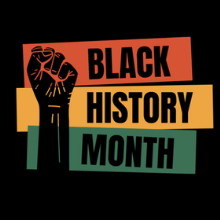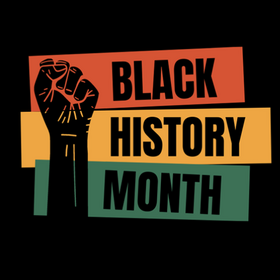
Our Whole School Assembly on Monday was dedicated to Black History Month, with a talk from Head of History Mr Paul McCraw, and Year 12 pupil S Gillen who talked passionately about the Bristol Bus Boycott of 1963. Here is his speech in full:
Teachers and pupils, can I start by asking you to put your hands up if you have heard of Rosa Parks. [a lot of hands in the air]
Now keep your hands up if you have heard of Paul Stephenson. [very few hands in the air]
Just as I expected. Now that is very strange because the actions of Paul Stephenson, along with Guy Bailey and Roy Hackett have undoubtedly had much of a bigger impact on life in our country.
This is why we need Black History Month.
In the late 1940s and throughout the 1950s, Britain created the National Health Service and invested heavily in housing and infrastructure but was short of workers, partly because of the great number of lives lost during the Second World War. Therefore, the Government decided to solve this problem by encouraging people to migrate from the British Empire, in particular the Caribbean.
Thousands eagerly responded to Britain’s call for help, left their friends and family behind and came in good faith from the colonies to the imperial motherland. By 1963 there was a British Caribbean population of around 3,000 people in Bristol, some newly arrived whilst others had fought in the British army. The new arrivals were shocked by the realities of their new lives, facing violence, racism and discrimination in housing and employment due to their skin colour.
Roy Hackett and Paul Stephenson helped to set up the Commonwealth Coordinated Committee in 1962 with the aim of uniting the Caribbean Community. A year later, Hackett set up an interview for Guy Bailey with the Bristol Omnibus Company but when the employers realised Guy was black, the interview was cancelled. This sparked huge public outcry resulting in the Committee calling for a boycott of the buses, that is a refusal of Bristol residents to ride the buses, inspired by the Rosa Parks’ Montgomery Bus Boycott of 1955.
After 6 months of boycotting, and support from key public figures such as West Indian cricket hero Learie Constantine and Labour MP Tony Benn, the company ended the colour ban.
Paul Stephenson continued to campaign against discrimination and played a key role in the British Government’s introduction of the Race Relations Acts of 1965 and 1968 which outlawed any form of public discrimination based on race. The boycott helped change Bristol and Britain.
So, while we still have a long way to go, our society has moved on so much thanks to brave individuals such as Paul Stephenson, Roy Hackett and Guy Bailey and we all should all be thankful for them.
They have created the platform for Black British men like Marcus Rashford and Raheem Sterling, despite my dislike for their clubs, to speak out and influence Government policy and public opinion; to change people’s lives for the better.
In Britain today we can all come together and take action to challenge social injustice and bring about improvements in our society.
Mr McCraw said: "In the History Department at Shiplake, we are absolutely dedicated to ensuring that we offer our pupils a curriculum that is global, relevant to everyone, challenging and reflects the diversity of the world we live in. Our teaching is informed by new writing from authors of colour such as David Olusoga, Afua Hirsch and Santham Sanghera."
All year groups will be exploring Black British History this month. For example, Year 9 will be looking at the contribution of Black soldiers in WW1 and Year 8 will be exploring Olaudah Equiano's role in ending Britain's involvement in the slave trade.
Our A Level pupils will also be learning more about the lives of Black Britons on a trip to London next month to investigate whether contested items in the British Museum such as the Benin Bronzes or the Elgin Marbles should be repatriated, followed by a meet up with the company Black History Walks, who will be giving a guided tour of the centre of London.






















